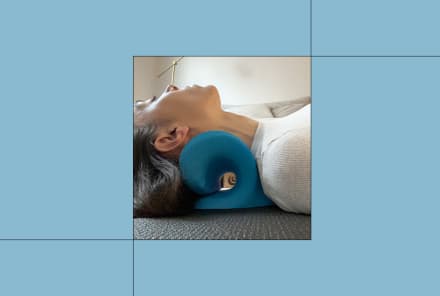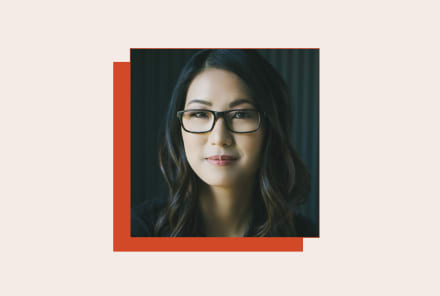Advertisement
The Wind Down: How A Bioengineering Professor Gets High-Quality Sleep


I've been a great sleeper my whole life; I can fall asleep in any situation pretty easily. (I'm famous among my friends for falling asleep on a chair or couch if they stay over too late!)
As an undergrad, I remember asking my M.D. adviser if it was abnormal to sleep for 10 hours/night (which is what I did), and he said, "No, always get the sleep you need." I still live by that. As a medical intern, I didn't drink coffee and always tried to get sleep. Sometimes I had to stay up very late or all night, but then I did my best to catch up right away. Some say there is no "catching up" on sleep, but I found it was important to get as much sleep as possible as soon as possible after a late night taking care of patients.
I've taken Nebula Genomics' at-home DNA sequencing test, and it's given me some insights into how my genetics may affect my sleep habits. Certain genetic factors can play into sleep quality and duration. For example, studies have shown that variants in three genome regions (ATOH8, NPY, and MPP61) are associated with sleep quality.
Note: I'm not chronically sleep-deprived, and I have not been diagnosed with narcolepsy (other reasons that people fall asleep easily) although I sometimes wonder if I should be checked to be sure I don't have something like sleep apnea. I once told a friend who is a sleep expert about my profound ability to fall asleep, and the part that impressed him most was that when I'm anxious at night, I go to sleep even earlier. I have found that when I feel nervous (like before tests or big days), it makes me sleepy, so I always go into big days with lots of sleep. I also notice that I am more tired during allergy season, and I do have big-time hay fever. My father was ill for about a year, and worrying about him disrupted my sleep. For the first time in my life, I woke up at 4 a.m. worrying about things, though this stopped eventually.
All I need to sleep is a bed and a good pillow (I previously didn't even need the bed—but at my age, I do). I never regret sleeping. I'm pretty positive and energized in my life—and I attribute some of this to my high levels of sleep.

- Average hours I sleep a night: 8.5
- Ideal bedtime: 10:30 p.m.
- Ideal wake-up time: 6:30 to 7 a.m.
- Nightstand essentials: Illuminated clock (I don't like pitch dark, and I like to check the time when I have micro-wakes.)
- Sleep bad habit: My wife and I go to bed with the TV on and set a timer to turn it off after 30 minutes.
- Caffeine consumption: All day, not sensitive to caffeine. After reading Why We Sleep: Unlocking the Power of Sleep and Dreams, I reduced evening caffeine... But having said that, I just had an espresso tonight at 6 p.m.
- How I track my sleep: I don't use a sleep tracker.
- The last product or habit that changed my sleep for the better: My sleep has always been great. But bad mattresses give me a backache, so new mattresses are always a joy.
- The first thing I do when I wake up: Say good morning to my wife.

10 p.m.: I check with my wife about when she is ready for bed. She's usually in her home office—sometimes I'll even go to bed and call her to tell her that I'm in bed while she's wrapping up work.
10:30 p.m.: I go to bed and turn on YouTube's Country Life Vlog, which has hypnotically beautiful and relaxing videos of people cooking.
10:35 p.m.: Turn on auto timer to turn off TV in 30 minutes.
10:36 p.m.: Close eyes and say good night.
10:37 p.m.: Fall asleep.... and get up to pee 1-2 times per evening. Welcome to being 61 years old.
7 a.m.: Alarm plays "And She Was" by the Talking Heads. Get up. Have coffee and get on with my day.
Watch Next
Enjoy some of our favorite clips from classes
Enjoy some of our favorite clips from classes
What Is Meditation?
Mindfulness/Spirituality | Light Watkins
Box Breathing
Mindfulness/Spirituality | Gwen Dittmar
What Breathwork Can Address
Mindfulness/Spirituality | Gwen Dittmar
The 8 Limbs of Yoga - What is Asana?
Yoga | Caley Alyssa
Two Standing Postures to Open Up Tight Hips
Yoga | Caley Alyssa
How Plants Can Optimize Athletic Performance
Nutrition | Rich Roll
What to Eat Before a Workout
Nutrition | Rich Roll
How Ayurveda Helps Us Navigate Modern Life
Nutrition | Sahara Rose
Messages About Love & Relationships
Love & Relationships | Esther Perel
Love Languages
Love & Relationships | Esther Perel
What Is Meditation?
Box Breathing
What Breathwork Can Address
The 8 Limbs of Yoga - What is Asana?
Two Standing Postures to Open Up Tight Hips
How Plants Can Optimize Athletic Performance
What to Eat Before a Workout
How Ayurveda Helps Us Navigate Modern Life
Messages About Love & Relationships
Love Languages
Advertisement

This Gave Me Osteoporosis At 32 & Here's What I Wish People Knew
AmiCietta Duche Clarke

New Study Shows This Vitamin May Lower Your Risk Of Alzheimer’s By 17%
Molly Knudsen, M.S., RDN

This Gave Me Osteoporosis At 32 & Here's What I Wish People Knew
AmiCietta Duche Clarke

New Study Shows This Vitamin May Lower Your Risk Of Alzheimer’s By 17%
Molly Knudsen, M.S., RDN













